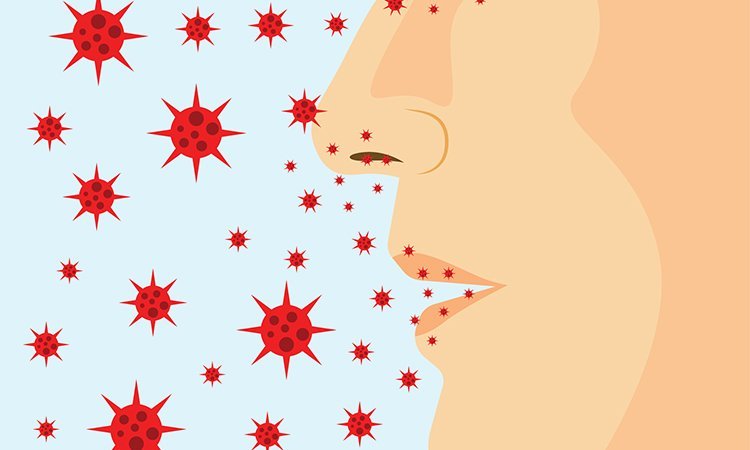More COVID-19 research on mucosal immune system required, scientists say
Posted: 30 November 2020 | Victoria Rees (Drug Target Review) | No comments yet
Researchers have said that more COVID-19 studies should focus on the mucous membranes of the nose and mouth, to reveal insights into SARS-CoV-2 immunity.


A group of researchers has argued that more COVID-19 studies should be devoted to how immunity emerges to SARS-CoV-2 in the mucous membranes of the nose and mouth. The team suggest that as COVID-19 tests are regularly in the form of nasal swabs or saliva tests, there needs to be a particular research focus on this. The paper was written by a group at the University of Buffalo, US.
Noting that the mucosal immune system is the immune system’s largest component, the researchers express concern that it has not been at the centre of much of the research on COVID-19 to date.
“We think it is a serious omission to ignore the mucosal immune response to SARS-CoV-2, given its initial sites of infection,” said Dr Michael Russell, senior author on the paper. “Clearly the response of the systemic immunoglobulin G antibody [the most abundant circulating antibody] is important – we do not deny that – but on its own it is insufficient.”
Russell noted that naturally, the initial focus of research was on cases of severe disease when the virus descends into the lower respiratory tract, especially the lungs, where the cellular immune responses exacerbate the inflammation rather than fight the infection. However, since the upper respiratory tract, including the nose, tonsils and adenoids are the initial point of infection for the SARS-CoV-2 virus, the immune responses that are triggered there are of special interest.
In addition, the authors say that the high rate of asymptomatic transmission of COVID-19, which the US Centers for Disease Control and Prevention (CDC) recently estimated at more than 50 percent, is another reason why mucosal immunity is so important.
“Given that many infected people remain asymptomatic and that a large number of those who develop symptoms suffer only mild to moderate disease, this suggests that something, somewhere, does a fairly good job of controlling the virus,” said Russell.
The paper recommends that studies are needed to determine the nature of mucosal secretory immunoglobulin A (SIgA) antibody responses over the course of infection, including asymptomatic or pre-symptomatic infection and mild and moderate cases of COVID-19 disease. In addition, the authors point out that the mucosal immune responses may vary depending on different age groups and populations.
A focus on mucosal immunity might also make it possible to develop a type of vaccine, such as a nasal vaccine, that could be easier to store, transport and administer, the team say.
“The potential advantage of a mucosal vaccine – especially one that is intranasal – is that it should induce immune responses, including SIgA antibodies, in the mucosal tracts, in this case especially the upper respiratory tract, where the coronavirus makes first contact,” explained Russell, adding that injected vaccines usually do not do this.
Among the areas of study that the authors suggest would be constructive are molecular studies on IgA antibodies and their relationship to the disease stage of COVID-19 and determining the characteristics of cells that secrete IgA antibodies and other mucosal immune cells induced by the infection or by vaccination.
“As mucosal immunologists with several decades of experience behind us, we have been perturbed at the lack of attention to this and we hope to draw attention to this glaring omission,” said Russell. “After all, the mucosal immune system is by far the largest component of the entire immune system and it has evolved to protect the mucosal surfaces where the great majority of infections arise.”
The paper was published in Frontiers in Immunology.
Related topics
Antibodies, Antibody Discovery, Disease research, Immunology, Research & Development
Related conditions
Covid-19
Related organisations
University of Buffalo
Related people
Dr Michael Russell



